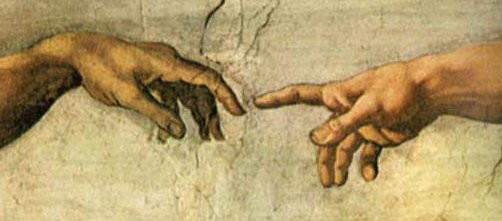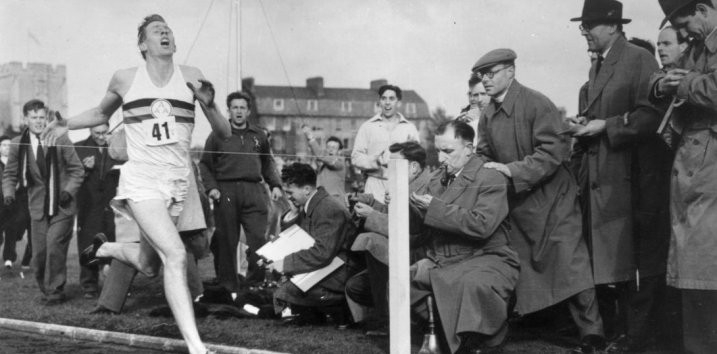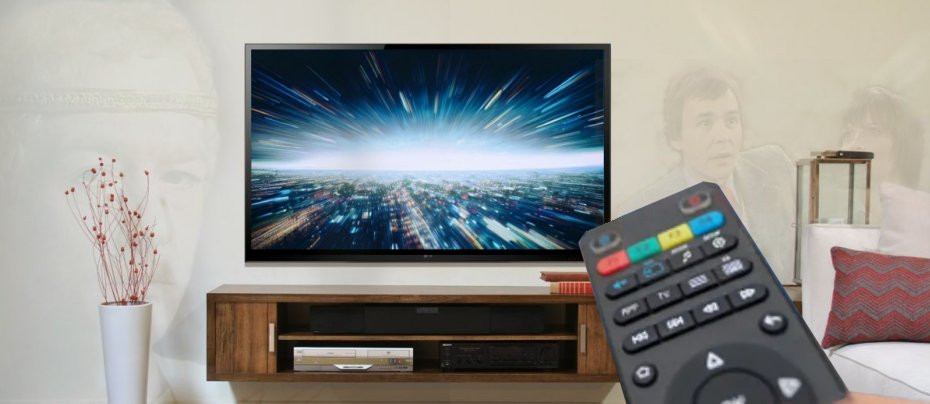
Why Television Matters
"human attitudes and behaviour are influenced, sometimes gradually and subtly, by the constant exposure to images which are reinforced by arranging them in a carefully constructed narrative"
Why Television Matters
A Very Personal View
This is an attempt to explain, possibly to myself, why I have taken the time to write over 200 reviews, and overviews, and articles about television on this website over the last four years, despite having no shortage of other things I should be doing. It is not because I generally watch a lot of television - the period of coronavirus "lock downs" being an exception for most of us, of course.
These days my time is valuable, so I am more discriminating in the television I watch: I choose carefully, and I think about what I watch before, as I watch, and afterwards. I ask myself if a particular programme has increased my understanding of anything. Have I learnt anything that might help me in my own life? Could seeing the world from the point of view of a different character broaden my perspective and make me more tolerant? Has it perhaps, in some small way, made me a better person?
These are exactly the same thought processes involved in choosing a book to read and reflecting on it. After all, the time commitment in watching a "boxed set" or a short streaming service season is about the same as in reading a substantial book.
One can learn as much from fiction as from non-fiction, from drama or even comedy as from documentary. Indeed, our brains are so designed that facts and ideas are best absorbed in the form of narrative. It is hard to memorise a page of data but easy to remember a good story.
Despite the superior status accorded to books, both books and television perform the same two vital functions, and the neurological impact of the combination of sound and visual images might mean that television is more effective at both.
First, they help us make sense of our lives and the world around us. We are dumped in this mortal existence without anyone explaining what is going on or what we are supposed to be doing here. Each of us is given about seventy or eighty years, sometimes more, sometimes less, to come up with our own narratives on the basis of whatever scraps of information attract our attention from the huge mass presented by the blend of personal experience, social interaction, formal education, and cultural media, including books, theatrical performance, music, the visual arts, cinema, the internet, and television. Just to be clear, television for this purpose includes all television programmes on internet platforms, as well as DVDs and the like.
Second, as part of those cultural media, books and television help us get along with each other. Culture is a shared set of signals, values, social norms, and so on that help us communicate. It saves a lot of time and prevents misunderstanding when we have a common vocabulary and can expect each other to act in specific ways in specific situations.
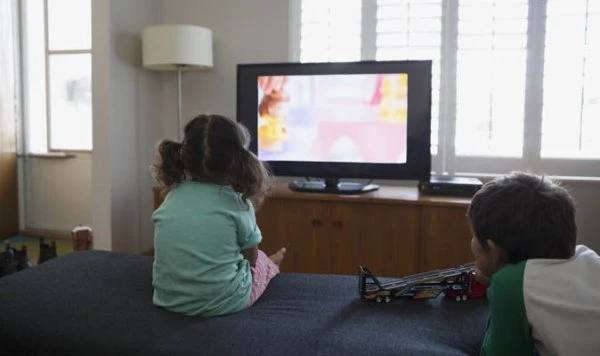
Traditionally we are supposed to pick up these things in our formative years from our parents, formal education, and possibly involvement in religious or other organisations. This is no longer the case, if it ever was. Busy parents seem to have less time to interact with their children and few have a clear idea what they want to achieve when they do, formal education is rarely held in high esteem as it once was, and organised religion and organised social activities in general currently play less of a role than they did.
In the American comedy, Dream On, a child is dumped in front of a television set, and, as a result, the images from that time flash back into his head at appropriate - or sometimes comically inappropriate - moments in his adult life. One suspects that most people in the West these days have had similar experiences. As for formal education, most of us can remember programmes we enjoyed better than any lessons we were forced to endure. The same is true of much of the social interaction of our formative years. We remember the more memorable scenes from television better than we do the majority of our actual conversations.
There is, of course, nothing new in this idea that our perceptions of the world and how we should act in it are shaped by cultural media, especially those involving performance.
The first such medium was poetry, the rhythm of the words making them more memorable and increasing their impact. This was doubly the case when the poems were set to a catchy tune as ballads. An anonymous "wise man" told the 17th Century Scottish politician Andrew Fletcher of Saltoun that he would not care who wrote all the laws if he could write all the ballads.
Back in Ancient Greece, performance poetry had evolved into the theatre as multiple voices replaced the single narrator. Later, in the late 16th Century, theatre evolved in turn into opera as music was lifted from the role of background accompaniment to become the driving force. Later still, in the 19th Century, Wagner saw his opera as a combination of all the arts - music, drama, and visual display - but it was the advent of cinema that really brought them all together for a mass audience.
So as drama succeeded poetry as the principal medium of mass culture, to be succeeded in turn by opera and then by cinema, each had enormous influence on the tastes and opinions of their respective times. Few scholars would disagree with that, and it is a staple of history to find examples of how certain poems, plays, operas, and films were culturally or politically very influential at particular moments.
It seems fair to say that television, in all its forms, has now succeeded cinema in turn as the defining performance medium of our culture.
It is therefore curious that respectable academia is so reluctant to discuss the cultural and political significance of television. After all, the way television works is more likely to have a lasting effect on our brains. While cinema and opera have great immediate impact as immersive experiences, television is more intrusive. The little box in the corner is always there - except it is no longer a little box or in the corner: we are surrounded by a plethora of screens, from huge, cinematic flatscreens on walls to tiny screens on mobile telephones, with everything in between including access to television through almost every modern computer attached to the internet.
Since we like to think that we are autonomous beings, we prefer not to dwell on how all these screens alter our perception of reality. Yet they do - and probably far more than most people could ever imagine.
This is not just about overt political propaganda, but, more importantly, about how human attitudes and behaviour are influenced, sometimes gradually and subtly, by the constant exposure to images which are reinforced by arranging them in a carefully constructed narrative.
The influence is greatest on children and young people, whose brains are said to be "plastic" - this is not an insult: it simply means that the neurons are in the process of linking to form the main pathways that will form the basis of their thought patterns for the rest of their lives. A way of thinking or a fixed idea that gets established at this stage may be hard to change in later years.
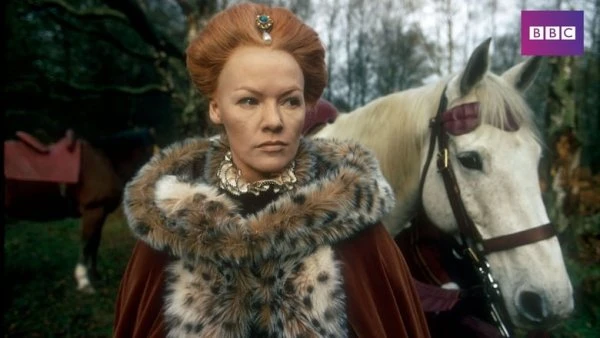
Even before the recent multiplicity of screens, television played a big role in determining those neural pathways. My own experience growing up in the 1970s confirms that. Costume dramas like Elizabeth R and I, Claudius encouraged my lifelong love of history. The likes of Dad's Army taught me that there were many things about my country about which I should feel proud but also, at the same time, that patriotism could easily become pomposity if it was taken too seriously. The satire in The Goodies gave me a more cynical view of contemporary Britain. Star Trek sometimes made me think about metaphysical questions.
That those who grew up around the Millennium profess horror at the attitudes of some 1970s television says something about the influence of the television of their own formative years. Apart from anything else, it says that they tend to have little knowledge of previous decades. As one who was there in the Seventies, and who admits frankly that he was influenced by what he watched, I can confirm that the general impression of racism given by the likes of Love Thy Neighbour was that it was extremely silly. If there was a stereotype of black people established in my child's brain by television, it was undeniably a positive one. Racism was in fact dying slowly of satire before it was revived in recent years by sanctimoniousness. Television played a positive role in this for which it is often given insufficient credit. Unfashionable as it now is to praise it, The Cosby Show may have done more to "normalise" black people in the eyes of white Americans than the Civil Rights movement. Similarly, the much reviled Mind Your Language actually helped to teach me that people were basically the same in spite of superficial ethnic differences. Some of the best anti-racist jokes I have ever heard came from Dave Allen, even if they used language that would not be allowed today.
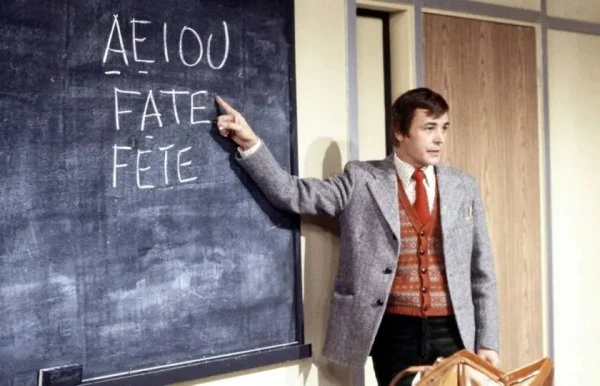
On a more negative note, however, there is no doubt that the portrayal of the "permissive society" on television in the Seventies increased the sexual objectification of women - as well as giving adolescent boys some seriously inaccurate notions of how to attract them. A youngster trying to copy what he picked up from 1970s television about how to attract women would probably end up arrested these days - and possibly even then.
(Incidentally, although it was a cinematic feature film, it was on television that I first saw Goldfinger. Brought up to be polite to women, even then I felt very uncomfortable at Bond's treatment of Pussy Galore. Yet Sean Connery was held up to ignorant boys like me as the exemplar of what women wanted, and, in the near total absence of personal experience, we were led to assume that his extreme assertiveness, to put it mildly, was what they expected and secretly wanted. Of course, I knew I was not Connery and did not try to imitate him, but it took many years of actual dating to eradicate the false impressions that had built up in my mind entirely as a result of the way the media of the 1960s and 70s presented women).
We all have different stories of how we were influenced by television - because we all watched different programmes growing up - but anyone claiming they were not influenced at all is either fooling himself or was brought up in one of the few households without the box in the corner. The influence may be all the greater where it is subconscious. One may at least mitigate it a little if one is aware of it and reflects on it. Most do not.
The influence continues beyond childhood, even when we assume we are so grown up and sophisticated that we are able to reject it. If we could, then why is television advertising such a major business?
This is well understood in totalitarian regimes, which have always kept television under tight central control. They follow the example of Dr Goebbels, who not only dreamed of network television but who realised that the best propaganda did not look like propaganda. He used the entertainment media more than the news media to serve his political purposes. In addition to making overt political points through cinema and radio, he used them to encourage more subtle changes in public attitudes and behaviour. The more sophisticated of his successors use television the same way.
Even the Western democracies adopted some of Goebbels' methods when fighting him. The Ministry of Information in Britain was almost as intrusive. While the First Amendment to the United States Constitution limited censorship of the American media, the Roosevelt Administration established a strong degree of control through a combination of business regulation, blackmail, and partisan connections.
In fairness, the ease with which Government established authority over them seems to have frightened the media, so they no longer have such a close working relationship with the State in the US and the UK. Indeed, the Vietnam War saw the American news and entertainment media become actively hostile to State policy to a degree that shocked the Roosevelt generation.
This begs an important question: if part of the role of the media is to monitor the State, then who watches the watchers? This applies to entertainment media as well as news media - perhaps more so, given the greater potential influence of the former. It leads on to a broader question: what is the role of television in a democracy?

It has been said that a newspaper consists of such of a proprietor's prejudices as his advertisers permit him to print. Sadly, the old style proprietor, actively involved in his local newspaper, is largely a thing of the past. Control of newspapers, television channels, and most other media is now in the hands of conglomerates. What remains true is that most must still adapt their content to market demands. The advertisers, or, in the case of television, the big advertising agencies, may not have the power they once had, but the consumers to whom they answer, and whom they may be said to represent, remain sovereign.
So the conglomerates, as proprietors, are ultimately subservient to the consumers because they are interested only in the bottom line. They are therefore less interested in forcing any sort of ideological agenda on the public than in giving them whatever they want to buy.
This means that the actual producers of content are left to a great extent to their own devices so long as the money keeps rolling in. The producers of content in the public sector media, which are still very powerful in the UK and Europe, do not even have to worry about pleasing the consumers to keep the money coming. They need only satisfy the politicians.
Television therefore consists not of the prejudices of an individual proprietor, but of a class of producers, which includes, for this purpose, not only actual producers of various ranks but also the more important studio and network executives - subject always to the market in the private sector and political influence in the public sector.
Thus there is no great conspiracy controlling the media, whether of the Left or the Right, or of any racial and/or religious group, or of any secret organisation. There is only money and small-p politics - and social conformity.
That social conformity may, however, be stronger than any conspiracy. The arts and entertainment have always been disproportionately attractive to a particular type of personality. These people are necessarily more open to new ideas, or at least ideas that look new and modern and fashionable. This openness helps them feed the public's insatiable appetite for original content - even if, in truth, there is nothing new under the sun.
Academic psychology has confirmed a fairly predictable, if far from universal, link between a predisposition towards the new and a tendency to favour the political Left - which is only to be expected, since the Left is associated with modernity because conservatism is, by definition, well, more conservative. Those with a predisposition toward the new are also less likely to be religious and more likely to be sexually permissive, both in their attitudes and personal lives.
This is to be expected and - again it should be stressed - should not be taken as evidence for some Vast Left Wing Conspiracy controlling the media, for no such organisation exists. However, in television, as in almost all other businesses, getting work depends to a very great extent on social contact, and most people prefer to socialise with people who share their own attitudes. This is particularly true of many on the political Left. The net effect of this is that alternative voices tend to be excluded.

It is therefore fair to say that the people who control what goes on television in most Western democracies are not proportionately representative of the population as a whole in terms of their political, religious, and moral views, or their personal tastes. For example, an unscientific, but believable, 2016 survey of British "creatives," including those working in television, had 96% opposing Britain leaving the EU. Similarly, very few people in Hollywood voted for Donald Trump, or, if they did, they feel obliged to keep quiet about it for the sake of their careers. For all its nominal championing of tolerance, "the industry" can be intolerant of dissenting views.
This one sidedness is inevitably reflected in entertainment programming. Even where there is no deliberate agenda, certain attitudes are assumed. This matters because of the immense potential power of television to mould the public mind, for better or for worse.
As an example of its power to do good, Ken Loach's Cathy Come Home was far more effective in showing the problems of homelessness than any documentary - the power of story again.

On the other hand, an example of television's abuse of power is its treatment of Mary Whitehouse, whose campaigning to "clean up television" maybe her an object of constant mockery on and by television itself. That was very effective in undermining her credibility. Young people, including me at the time, were in any case all in favour of the sex and violence on television. As I matured, I began to see why she was not entirely wrong, even if some of the battles she chose to fight may have seemed eccentric. Either way, she was a brave woman to stand up to people who abused her from privileged platforms to which she had no access or right of reply. In retrospect, whatever one thinks of Mrs Whitehouse, television's use of its own power to attack her was a nasty piece of bullying by a whole industry.
This power for good or evil has implications both for viewers and producers.
Viewers need to learn to be critical, and not to take what they see even in apparently innocuous shows at face value.
Producers need to learn that with great power comes great responsibility. If they have a political agenda of their own, they need to be honest about that from the start. If not, they need to be careful about letting their own prejudices influence their work. There is a need to seek out alternative voices, to ensure balance both within shows and over the schedule as a whole. A future Ken Loach should not be censored or discouraged or excluded but should be put into proper context, as a political artist to be considered among other political artists and not all with the same politics.
Above all there has to be a greater respect for fact, even in entertainment shows. This is the theme of a previous article I wrote for this website, Hunters and the Holocaust: the Ethics of Entertainment, and which has been a constant refrain in a number of my reviews here.
The standard response from producers is "Hey, we are just trying to entertain people." This is at best very disingenuous. Some producers have deliberate political or social agenda. The rest are, or really ought to be - and have no excuse if they are not - well aware of the power of television to influence beliefs, attitudes, tastes, and day to day patterns of behaviour. It is not just children but adults who tend to copy what they see on television.

This would not matter as much if everyone led full intellectual, cultural, and social lives. Most do not. Few read a lot of books. Few reflect on what they see on television and check facts for themselves. Few seek out social contact with people of different backgrounds and opinions to expand their own experience and thinking.
The vast majority of people in the world today - which means, in democracies, the vast majority of voters - are largely passive recipients of whatever the media feeds them, and there is no doubt that television is by far the most influential of the media. For many it is the only one.
Unless they take an active interest in current affairs, entertainment will be their main purpose in accessing the media. Indeed, many modern lives seem to be no more than a ceaseless quest to be entertained. So "entertainment" takes on a disproportionate significance. It is all a lot of people have - and television is their only window on world beyond their own social circle.
This is why television matters, and why producers, in the broad sense, need to be more responsible. "Hey, we are just trying to entertain people" is no excuse - even if it was true.
Entertainment is more than entertainment. Even the Ancient Greeks, for whom theatre was a political act, understood that. So did the Ancient Romans with their gladiatorial games keeping the mob amused and therefore politically quiescent. So did Shakespeare, who said "the play's the thing" to catch the conscience of the king, and Shelley, who called poets the unacknowledged legislators of the world. So did the nationalist composers Verdi and Wagner. So did political film directors like the Communist Eisenstein and the National Socialist Riefenstahl. So does Barack Obama, who went into television production after leaving the most powerful political office in the world, and Donald Trump, who made the same journey in the opposite direction. To paraphrase Andrew Fletcher of Saltoun, who would care who wrote all the laws in the world if he could write all the television programmes?
Published on June 19th, 2023. Written by John Winterson Richards for Television Heaven.


